Are you considering taking the next step in your career through further education? Resigning from your current position to pursue educational advancement can be both exciting and challenging. In this article, we'll guide you through a thoughtful resignation letter template that expresses your gratitude while clearly stating your intentions. So, grab a cup of coffee and let's explore how to elegantly navigate this important transition together!
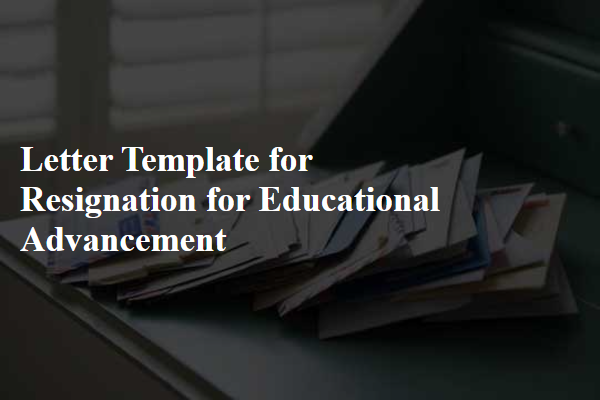
Clear statement of resignation
Resigning from a position to pursue educational advancement signifies a critical transition in one's career path. A resignation letter, typically addressed to a supervisor or human resources, should clearly articulate the intent to leave the current job position. This document often specifies the last working day, adhering to company policy, which may require notice periods of two weeks or longer. Elaborating on the reason for departure, such as enrolling in a degree program at a recognized university can provide context. Gratitude for professional experiences and opportunities gained during tenure at the organization, be it corporate or educational, can enhance professional relationships. The overall tone should remain professional, fostering goodwill as one embarks on this new chapter of academic growth.
Specific last working day
Submitting a resignation letter for educational advancement can be a significant step in one's career. A well-crafted letter specifies a last working day, ideally providing ample notice to the employer, typically two weeks. The letter should express gratitude for the opportunities received at the current institution, highlighting specific experiences or skills gained that contributed to personal and professional growth. It is essential to include details such as the intended course of study, the institution's name, and the reason for pursuing further education, demonstrating a commitment to self-improvement. Keeping the tone professional and respectful will help maintain a positive relationship with colleagues and supervisors.
Reason for resignation - educational advancement
A resignation for educational advancement reflects a pivotal career decision aimed at personal growth. Many individuals pursue higher education, such as master's degrees or specialized certifications, to enhance knowledge and skill sets relevant to their careers. Institutions like universities or colleges often provide programs designed to meet the demands of evolving job markets. Such educational pursuits can require significant time commitments, prompting employees to resign from positions in order to focus on studies. This thoughtful decision usually aligns with long-term career aspirations, potentially leading to advanced roles or new career paths in industries that value continued education and development.
Expression of gratitude
Resignation letters for educational advancement express gratitude towards the employer while communicating intent to pursue further studies. Key elements include a respectful tone, clear statement of resignation, mention of specific educational goals, and appreciation for growth opportunities received during employment. Acknowledging colleagues and supervisors can foster goodwill. Additionally, providing a transition plan, such as assisting in training a replacement, underscores professionalism. Such letters reflect a thoughtful process of career development, aligning personal aspirations with professional experiences. Effective communication in this context contributes to maintaining positive relationships for potential future collaborations.
Offer to assist in transition
When resigning from a position to pursue educational advancement, it is essential to communicate professionally and courteously. A resignation letter should specify the intention to leave, the last working day (typically two weeks from the date of the letter), and a willingness to assist with the transition process. It is advisable to express gratitude for the opportunities and experiences gained in the current role, which can include specific projects, mentorship, or professional growth received from the employer. Offering to help train a replacement or prepare documentation related to ongoing tasks can demonstrate commitment and professionalism, reinforcing positive relations with the employer and colleagues in the future.

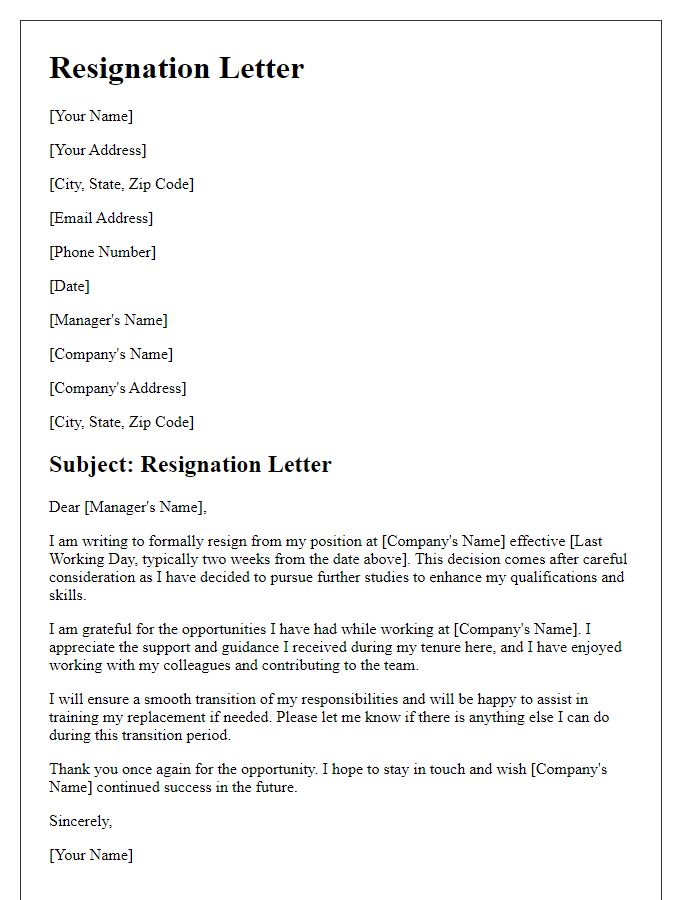
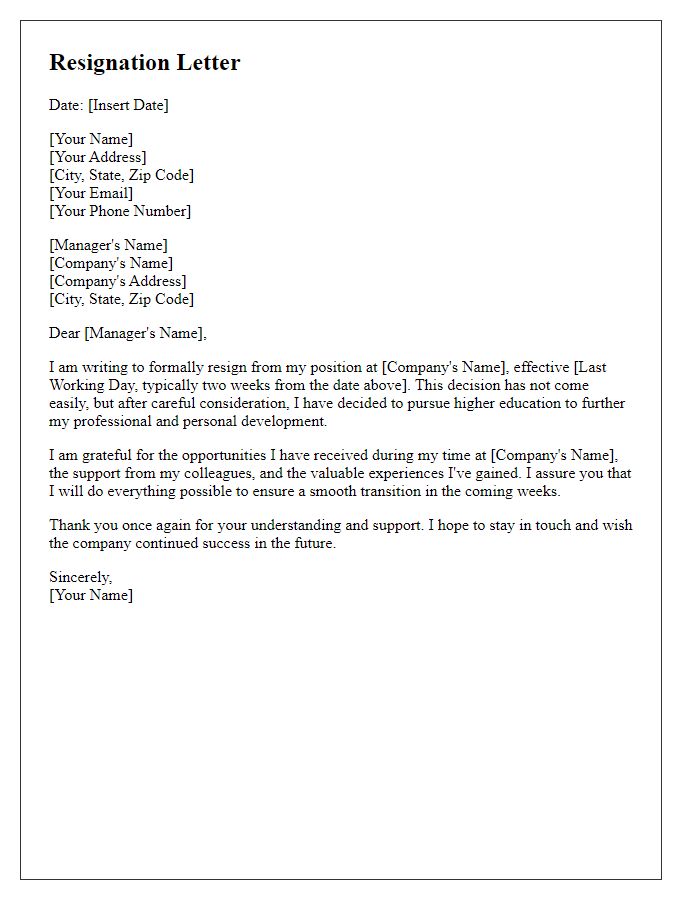
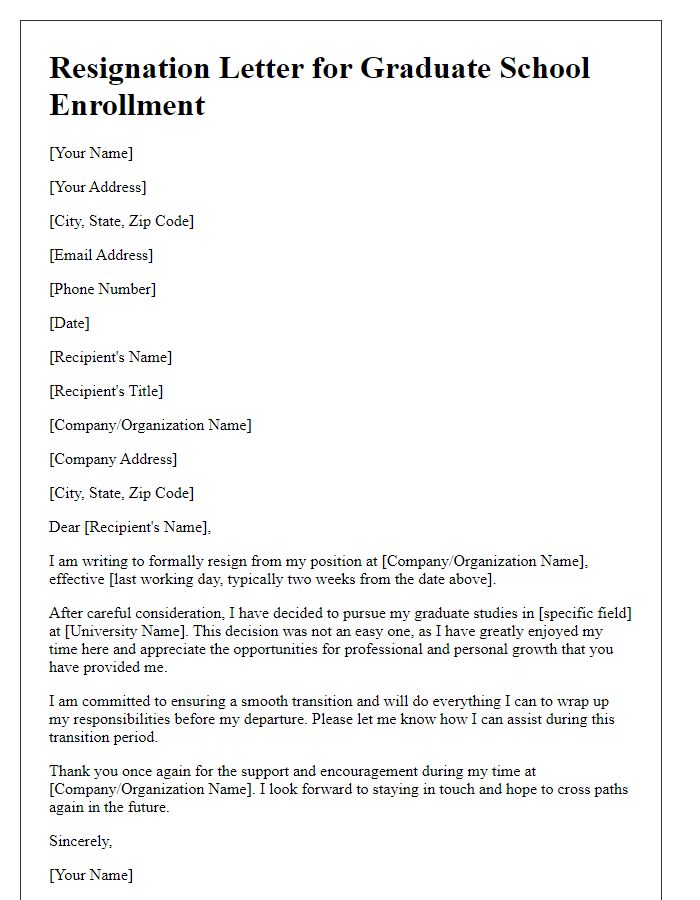
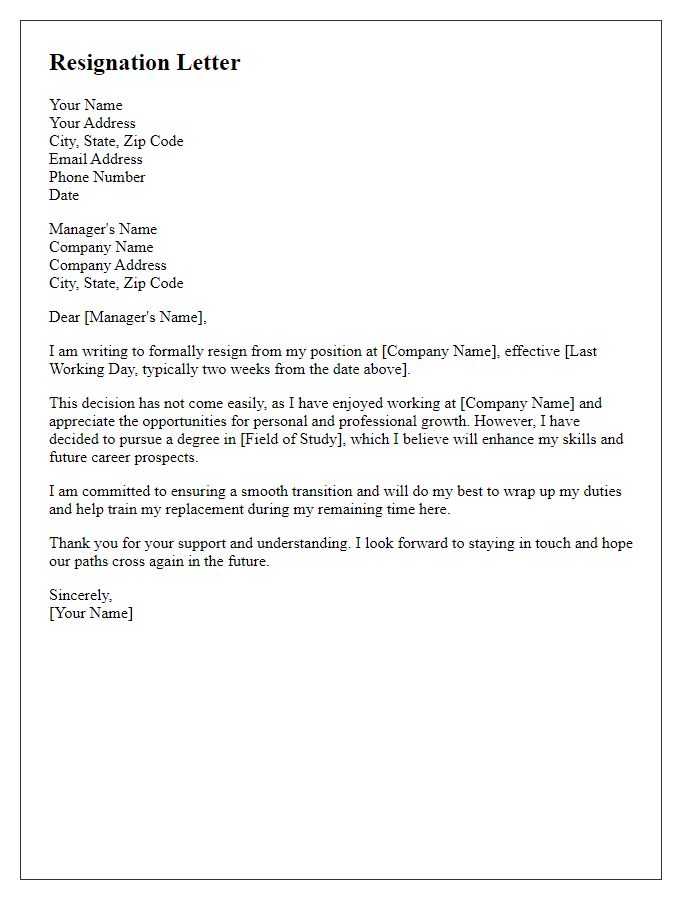
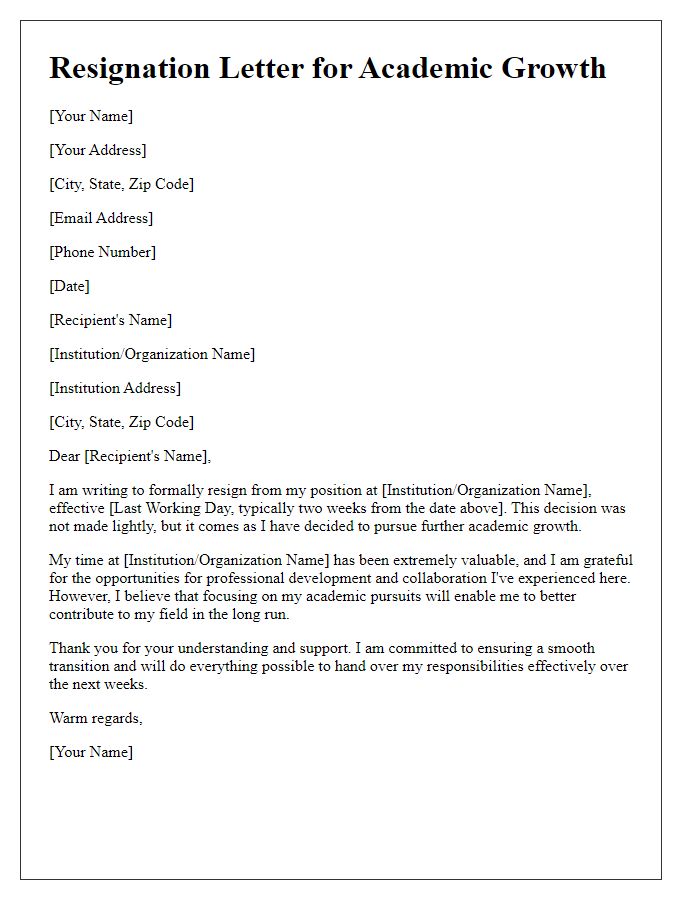
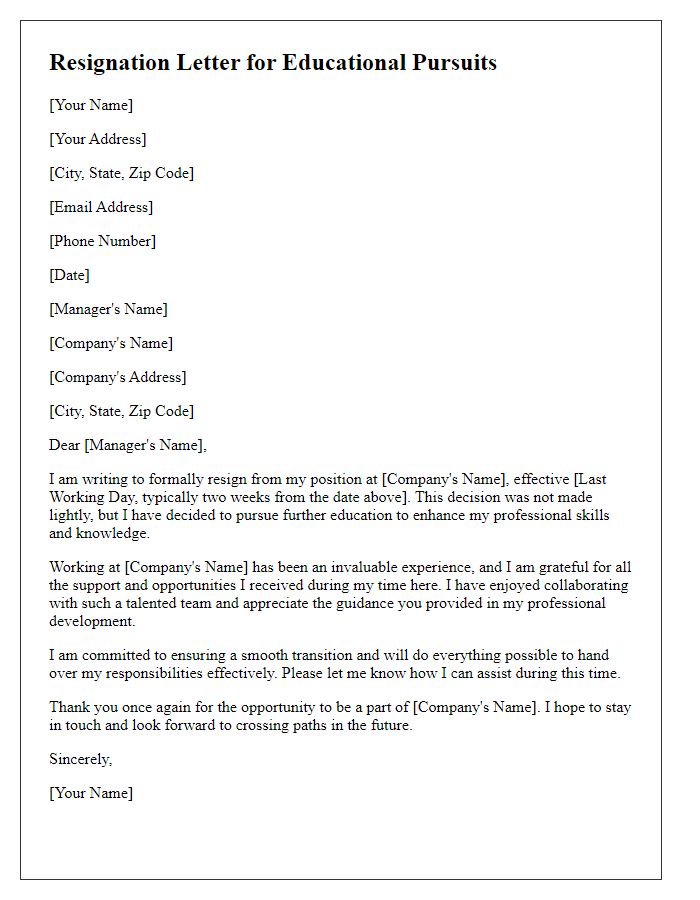
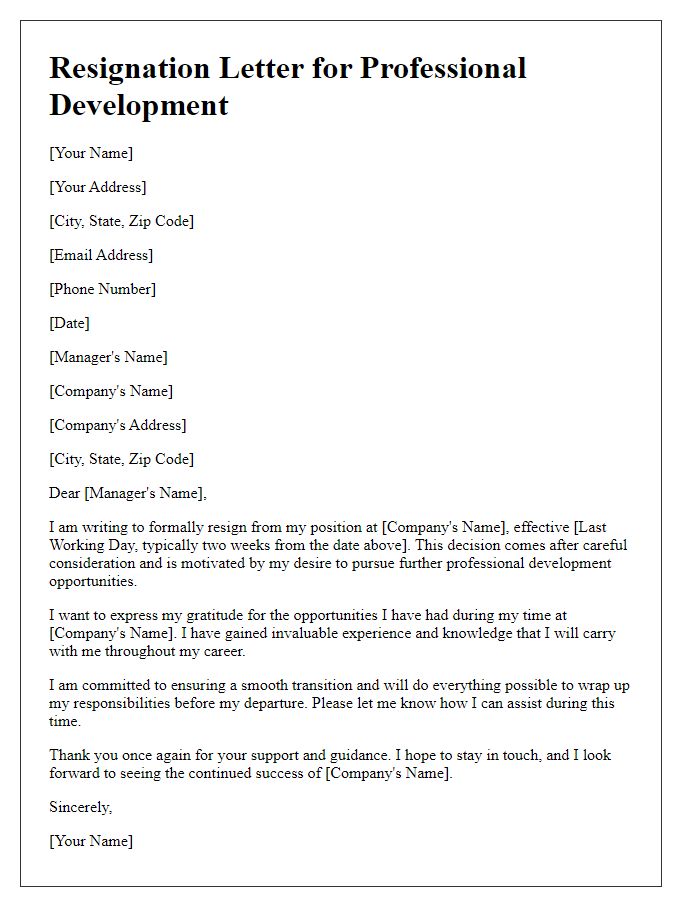
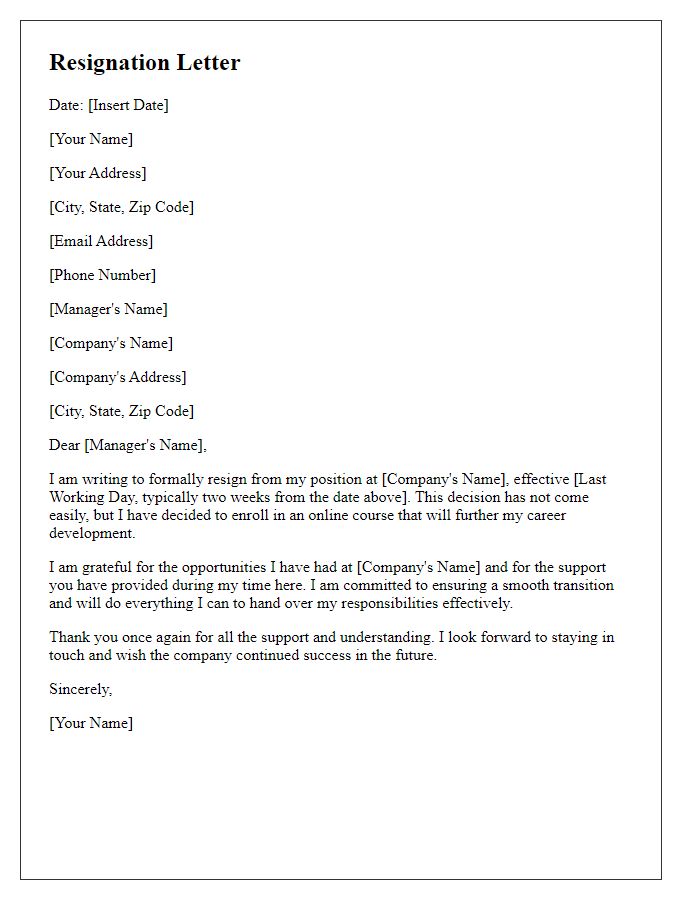
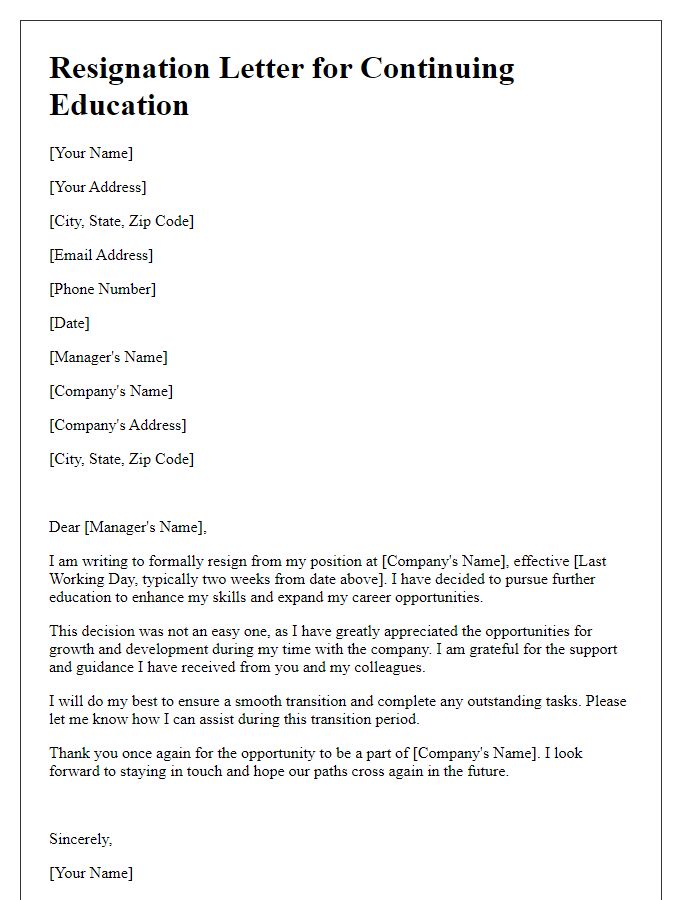
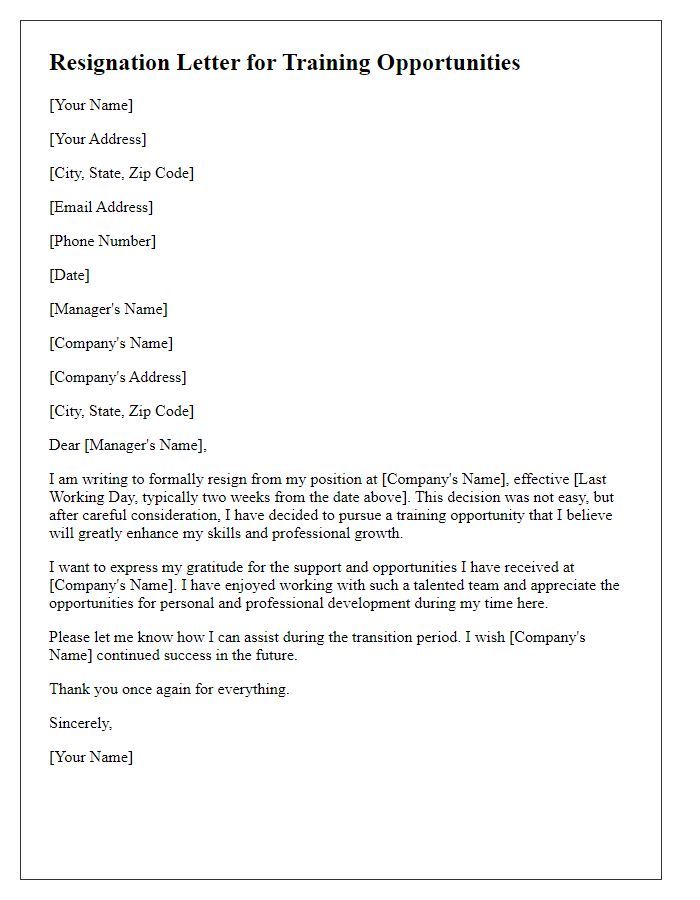


Comments